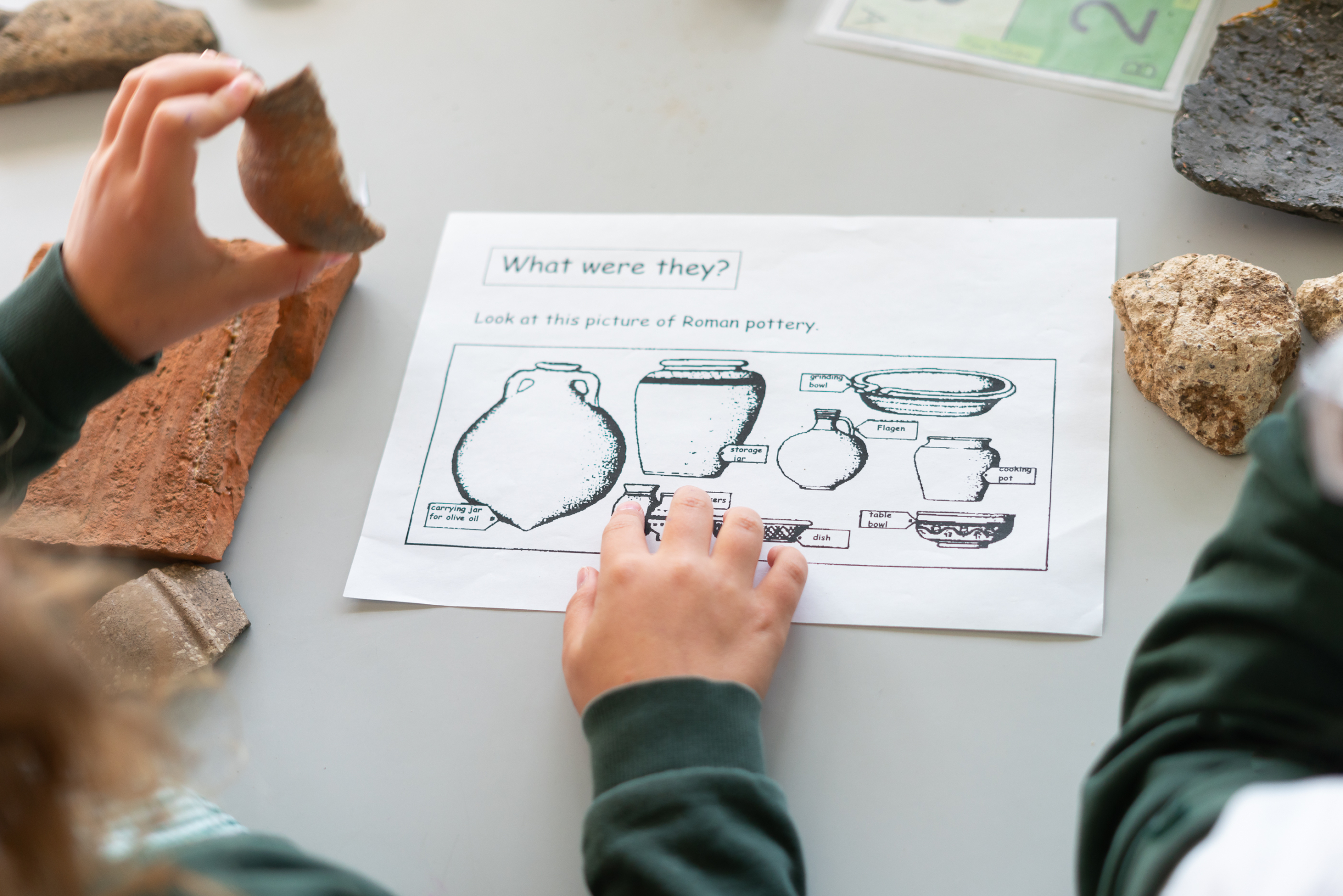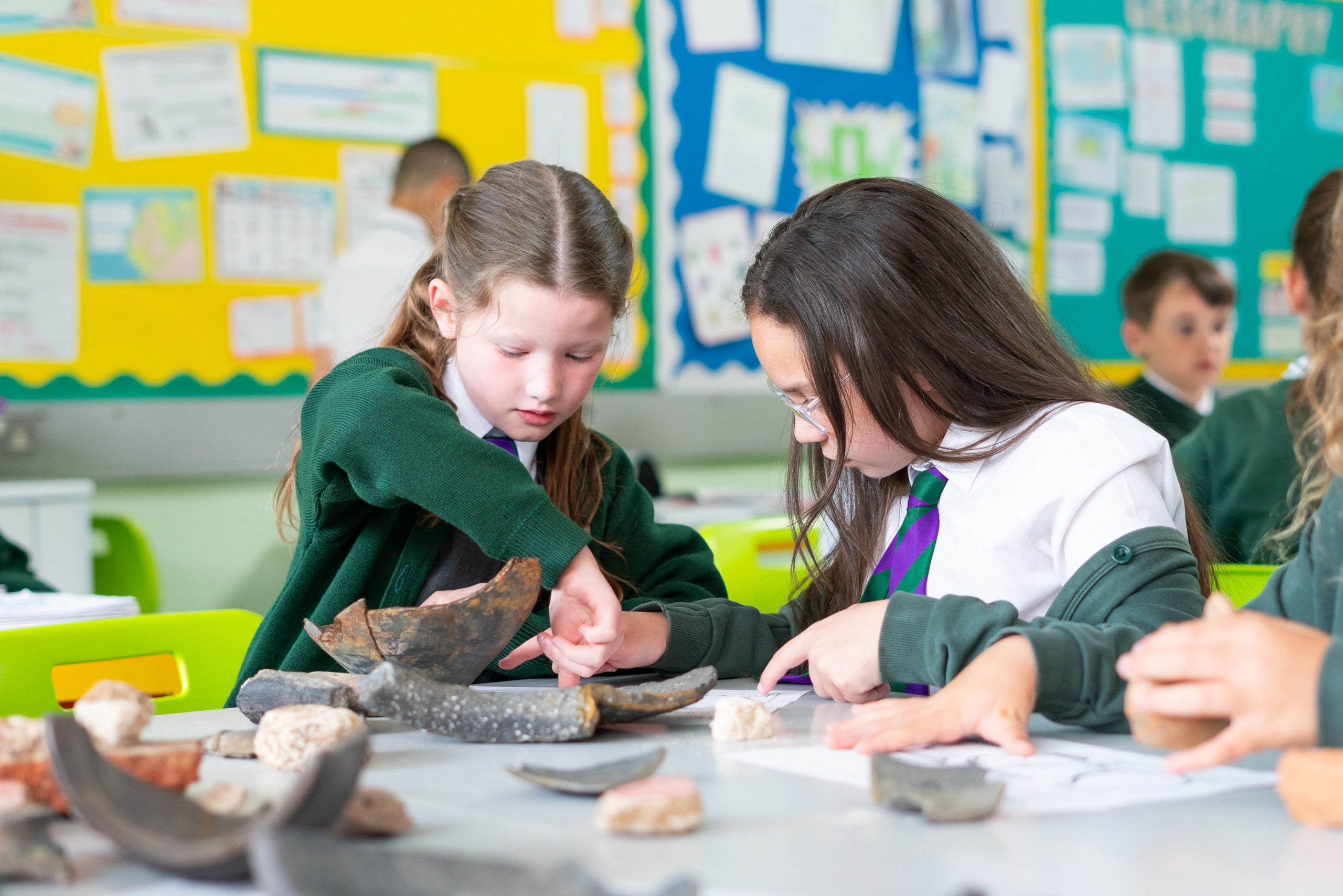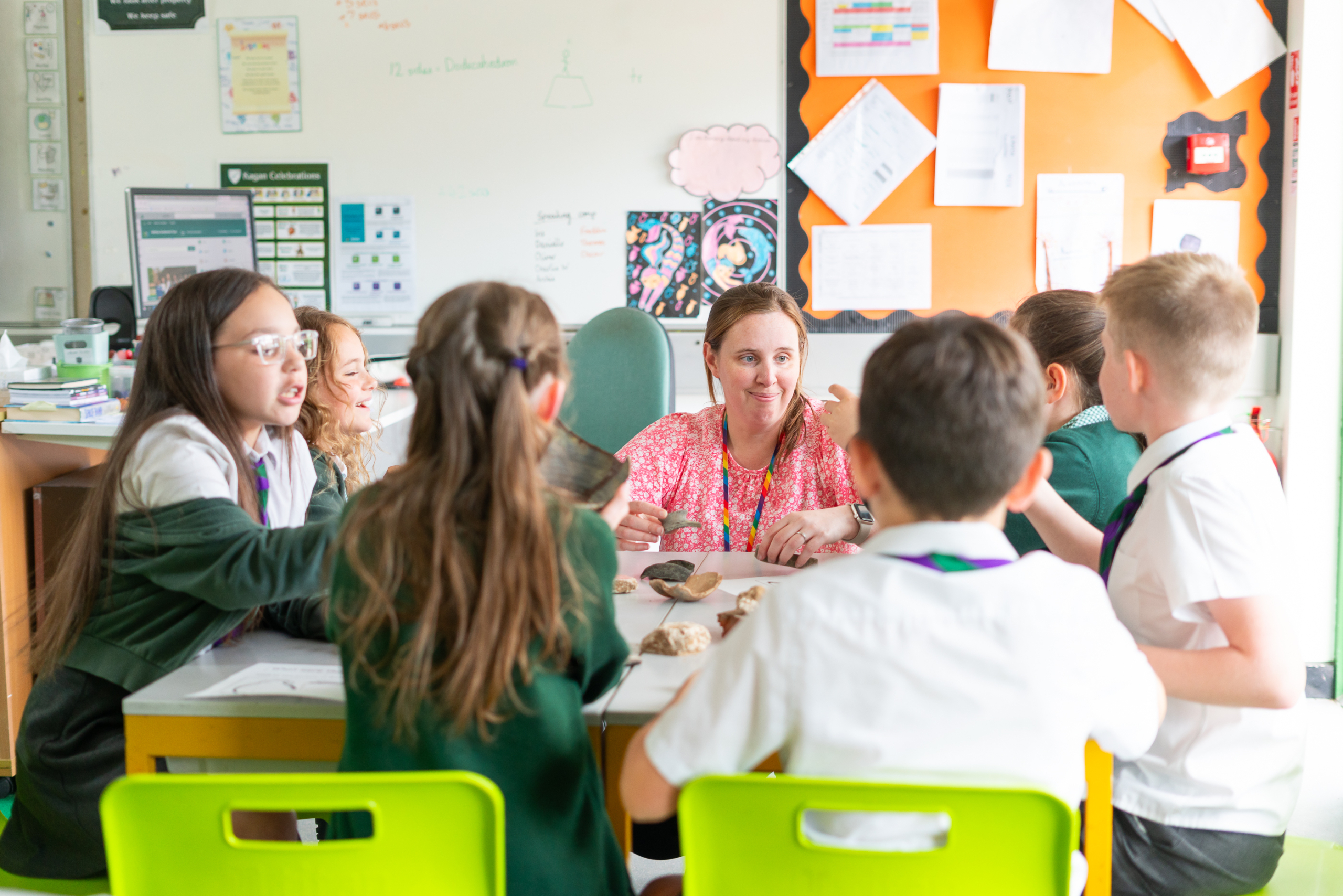History Subject Leader: Miss K Reid
History helps our pupils to appreciate the complexity and diversity of human societies and development. Pupils are given the opportunity to look back at human experiences across time and place, to fully understand their place in the world; exploring rights and wrongs, morals and ethics.
Intent
- Enhance their ability to think critically about history and communicate ideas confidently;
- Gain a passion for history and an enthusiastic engagement in learning, which develops their sense of curiosity about the past and their understanding of how and why people interpret the past in different ways;
- and begin to gain an excellent knowledge and understanding of people, events and contexts from a range of historical periods and historical concepts and processes.


Implementation
History is taught across the school to ensure that all children deepen their understanding of historical topics. Teachers have identified the key knowledge and skills of each topic and consideration has been given to ensure progression across topics throughout each year group. By the end of year 6, children will have a breadth of knowledge about key periods in History, from the Stone Age to the present day. They will be able to draw comparisons and make connections between different time periods and their own lives.
Cross-curricular outcomes in History are specifically planned for, with links between the History curriculum and English lessons.
To enhance children’s learning and understanding, the local area is utilised, and opportunities for learning outside the classroom are used and encouraged by class teachers. Every year group carries out a History Day to enrich the children’s understanding of a particular topic, allowing them the opportunity to immerse themselves into the cultural practices of that time period. Within each year group area, children have access to a Historical timeline, which can be used independently by the children to develop their understanding of chronology.
Planning is informed by both the national curriculum and Quigley’s Essentials Curriculum. Outcomes of work are regularly monitored to ensure that they reflect a sound understanding of the key identified knowledge.
Impact
Outcomes in topic and literacy books show a range of historical objectives being taught. Children are encouraged to reflect on what they have learnt throughout the topic, and how it relates to other periods in History.
In History lessons, teachers place emphasis on analytical thinking and questioning which helps pupils to infer information from historical sources and develop critical thinking and curiosity. In turn, this enhances their abilities to sift through information and form their own judgements and arguments. Local history displays in each Key Stage Two classroom allows children to source, contribute and identify historical links within the locality. Furthermore, this gives children the opportunity to become passionate historians and empowers children to take charge of their own learning.

History in Each Stage
Children will be able to ask and respond to simple questions about the past using simple source materials such as photographs and begin to describe similarities and differences between historical artefacts. They begin to order artefacts and pictures, using simple vocabulary to describe the passing of time.
Children will be able to ask and answer questions using a range of source materials and use stories of famous historical figures to compare aspects of life in different times, beginning to understand cause and effect by looking at what happened as a result of significant individual actions. They order events in a period of history and begin to recall the dates of important festivals or celebrations. They describe how their own lives are different from past generations and look at changes within the local area.
Children will be able to suggest useful research questions and choose the most important source material for a task, showing an awareness of a range of sources. They use labelled diagrams, recounts, stories, diaries and pictures to illustrate an understanding of historical events and famous people and use appropriate historical vocabulary to describe key features of a time period. They describe some of the main changes in Britain resulting from an event such as an invasion or war and explain how a significant figure of a period influenced change, expressing an opinion on whether a person or event had a positive or negative impact on life in Britain.
They will acknowledge different points of view expressed and explain why these are important in understanding and interpreting history. They will be able to make connections, draw contrasts and identify trends in two or more periods of history and provide reasons for, and describe outcomes of, the main events and changes, showing factual knowledge of aspects of Britain and the wider world.
History Progression
SEND Information
SEND and disadvantaged children are given the required support within history lessons to access all national curriculum objectives.
History Extra Resources
Further History Help

